Clarence Thomas Is Turning Federal Regulations Into Kindling
His concurring opinion gutting the Clean Water Act is just the beginning.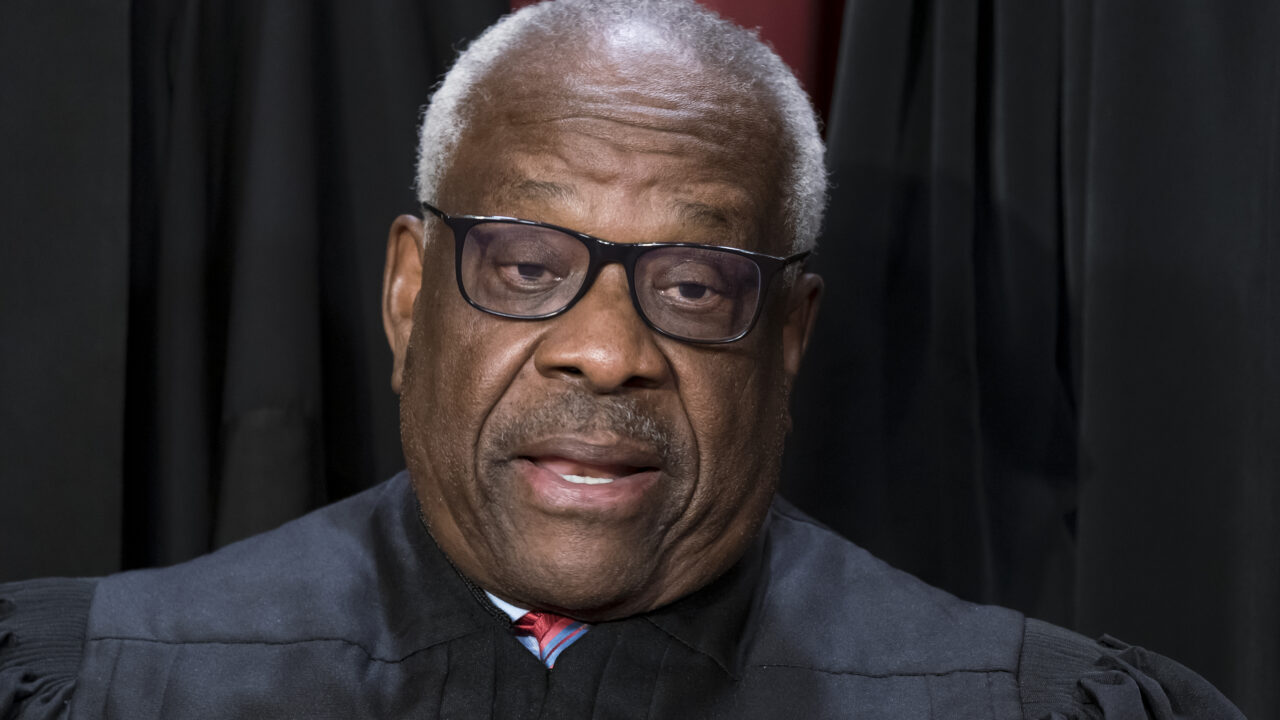 Associate Justice Clarence Thomas joins other members of the Supreme Court as they pose for a new group portrait, at the Supreme Court building in Washington, Friday, Oct. 7, 2022. Justice Thomas was nominated by President George H. W. Bush to succeed Justice Thurgood Marshall and has served since 1991. (AP Photo/J. Scott Applewhite)
This is Part of the "The Supreme Court’s War on the Future" Dig series
Associate Justice Clarence Thomas joins other members of the Supreme Court as they pose for a new group portrait, at the Supreme Court building in Washington, Friday, Oct. 7, 2022. Justice Thomas was nominated by President George H. W. Bush to succeed Justice Thurgood Marshall and has served since 1991. (AP Photo/J. Scott Applewhite)
This is Part of the "The Supreme Court’s War on the Future" Dig series
The Supreme Court has gutted the Clean Water Act (CWA) of 1972. Writing for a slim 5-4 majority in Sackett v. Environmental Protection Agency, the angry Republican shill otherwise known as Justice Samuel Alito handed down a ruling on May 25 that will remove 90 million acres of precious wetlands from the EPA’s oversight authority. The decision marks the latest dark turn in American law taken by the high court, and follows a blistering succession of reactionary rulings on voting rights, gerrymandering, union organizing, the death penalty, gun control, abortion, campaign finance and the use of dark money in politics.
Alito’s opinion redefines the term “waters of the United States,” as used in the CWA, to refer only to navigable “streams, oceans, rivers and lakes,” and wetlands having “a continuous surface connection” to such bodies. Wetlands with only subsurface or seasonal connections to larger waters, including many of those that provide vital flood control benefits and promote biodiversity along the Mississippi Delta and the Chesapeake Bay, will no longer be covered by the act. The ruling is a resounding victory for land developers and mining, oil and agricultural interests that have long complained about alleged EPA overreach.
But as regressive as Alito’s majority opinion is, it is light years more enlightened than the concurring opinion penned by Clarence Thomas and joined by Neil Gorsuch, whose mother was the first female director of the EPA during the Reagan administration and was forced to resign in disgrace over allegations of gross mismanagement.
Thomas’ concurrence is nothing less than an assault on the regulatory framework and legacy of the New Deal, and an invitation to his colleagues to redouble their efforts to “dismantle the administrative state” in furtherance of property rights and what he wants the world to believe were the intentions of the 18th century “Framers” of the Constitution.
Never known for his subtlety, Thomas lays bare his intentions at the outset of his opinion, declaring, “I write separately to pick up where the court leaves off.” From there, he launches into an explicit attack on the court’s New Deal-era jurisprudence on the “commerce clause” — Article 1, Section 8, Clause 3 of the Constitution — that grants Congress “the power to regulate commerce with foreign nations, and among the several states and with the Indian tribes.”
Thomas’ concurrence is nothing less than an assault on the regulatory framework and legacy of the New Deal.
In Thomas’ view, the court of the later New Deal, which took shape after President Franklin Delano Roosevelt unveiled a plan in 1937 to expand the bench to counter earlier decisions that scuttled his social and economic agenda, strayed from the “original meaning” of the Commerce Clause. Thomas argues that for the founding generation, the clause was limited in its scope and application. “From the beginning,” he writes, “it was understood that “[t]he power to regulate commerce includes the power to regulate navigation,” but only “as connected with commerce with foreign nations, and among the states.” For the Framers — and necessarily for us under his originalist ideology — non-navigable wetlands were and remain beyond the limits of federal control.
But Thomas’ takedown of the EPA is only the beginning of his plan to remake American law. His ultimate goal is the dismantling of the regulatory state, piece by piece. The original meaning of the term “commerce,” he continues, “stood in contrast to industrial activities like manufacturing and agriculture, and founding era sources demonstrate that the term was used to mean trade or exchange — not all gainful economic activity” that might affect trade and exchange.
In a recent column, Vox legal analyst Ian Millhiser described Thomas’ concurrence as “an act of judicial arson” that would “so severely limit Congress’s power to legislate that he might as well have taken several volumes of the United States Code and lit them on fire.”
Under Thomas’ approach to the Commerce Clause, Millhiser warns:
[T]he federal ban on child labor is unconstitutional. So is the minimum wage, federal laws protecting the right to unionize, bans on workplace discrimination and nearly all other regulation of the workplace. Thomas’ approach endangers countless laws governing private business, from rules requiring health insurers to cover people with preexisting conditions to the ban on whites-only lunch counters. And even that is underselling just how much law would be snuffed out if Thomas’ approach took hold.
Concurring opinions are not the law, but they are nonetheless significant. In their most benign form, they allow justices who agree with the result reached by the majority in a given case to expand upon their personal views, and engage their colleagues and the public in a wider dialogue.
They can also be used, however, to push the law in certain directions. Thomas writes concurring opinions for precisely such purposes. Concurrences in his hands are invariably provocative, targeted and aggressive. Take, for example, his concurrence in Dobbs v. Jackson Women’s Health Organization, last June’s catastrophe that overturned Roe v. Wade, in which he encouraged the court to reexamine the privacy-based rights to contraception (Griswold v. Connecticut), the right to engage in same-sex intimacy (Lawrence v. Texas, 2003) and the right to same-sex marriage (Obergefell v. Hodges, 2015).
His ultimate goal is the dismantling of the regulatory state, piece by piece.
Once upon a time, Thomas was considered an intellectual lightweight who rarely spoke during oral arguments and was derisively referred to as a “clone” or “puppet” of the late Antonin Scalia. No more. Today, Thomas is widely seen as the intellectual leader of the court’s extreme right-wing bloc. He is a barometer of the judicial present and a harbinger of the future.
He is also, arguably, the most corrupt justice in the history of the Supreme Court, as his recently exposed dealings with Republican billionaire Harlan Crow suggest. He has become a dire threat to our health and wellbeing as individuals and as a nation. We would be fools to regard him as anything less.
Your support matters…Independent journalism is under threat and overshadowed by heavily funded mainstream media.
You can help level the playing field. Become a member.
Your tax-deductible contribution keeps us digging beneath the headlines to give you thought-provoking, investigative reporting and analysis that unearths what's really happening- without compromise.
Give today to support our courageous, independent journalists.
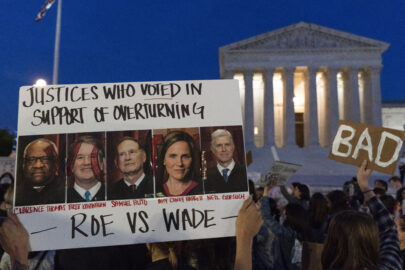
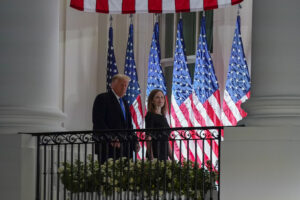

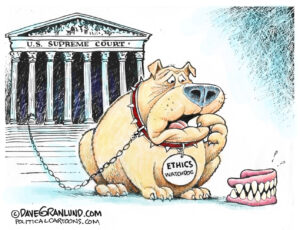
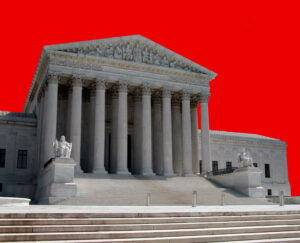
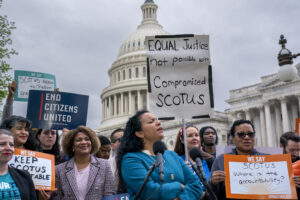

You need to be a supporter to comment.
There are currently no responses to this article.
Be the first to respond.